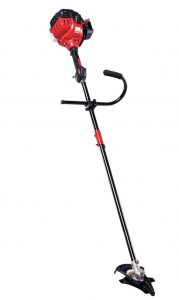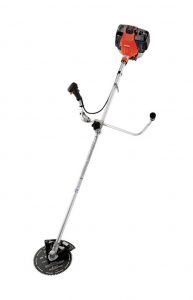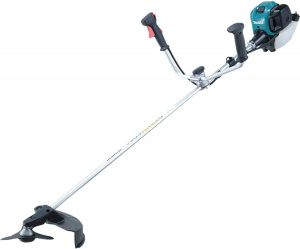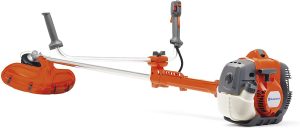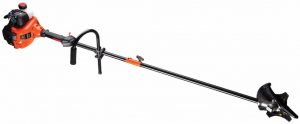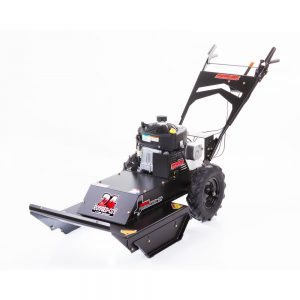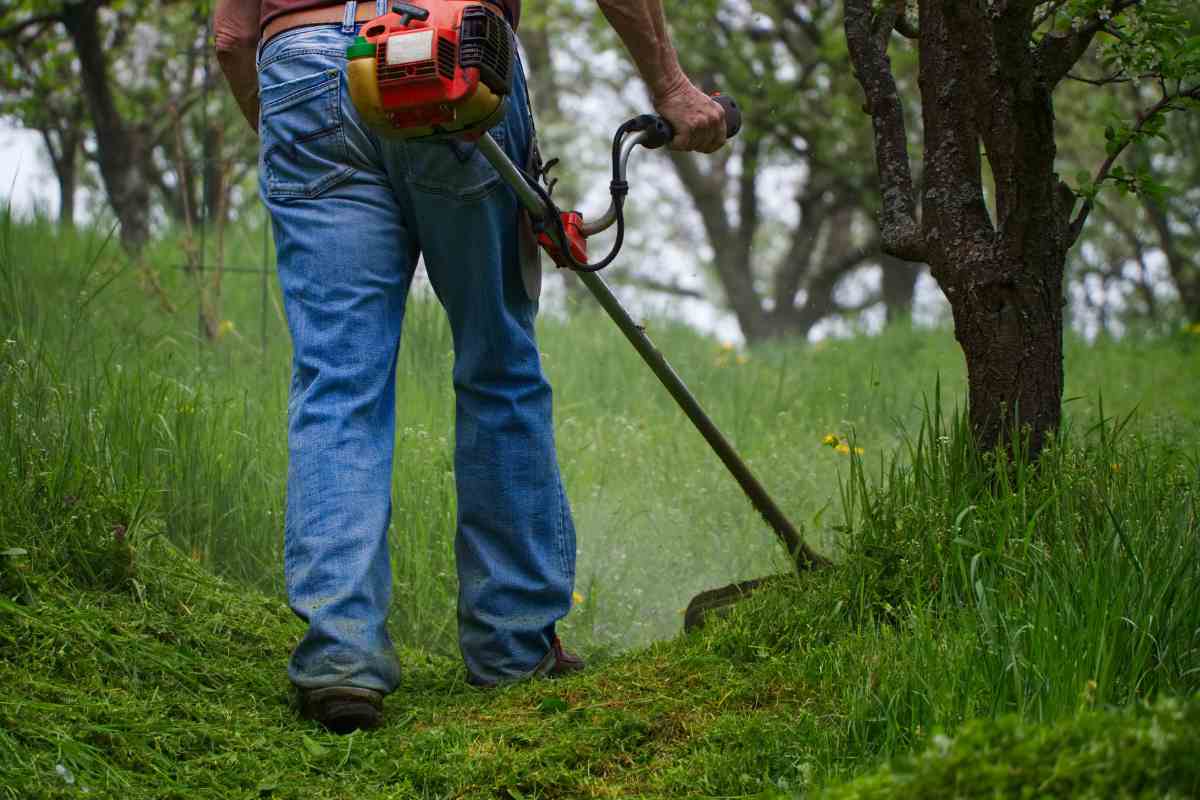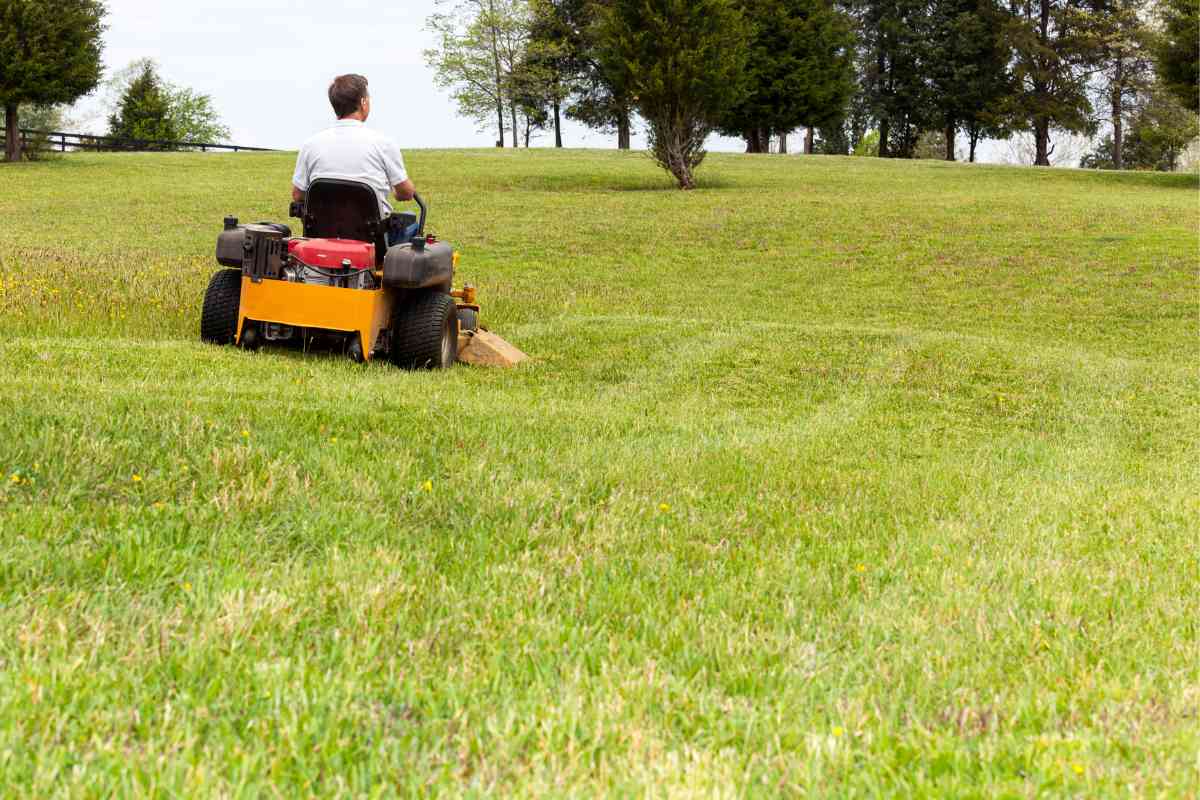
Best Brush Cutters 2023: Reviews & Buying Guide
We are reader supported, and may earn commissions from links on this page.
The front yard is a mess, and the backyard is worse. We’ve all been there. It doesn’t matter how you got to this point, maybe it was a bad underlayment years before, or perhaps you just bought a new home and hadn’t realized how truly bad the yard would be before the purchase.
Whatever the circumstances, you’re looking at yards of weeds, mixed grasses, and small trees trying to reclaim your yard.
That might be the ideal circumstance to go out and get your first brush cutter. It’s hard enough work that you want to make sure you get one of the best brush cutters. Sure, you could get the job done with other, less powerful, tools, but why put in the extra effort?
Of course, that isn’t the only circumstance where you might need a brush cutter. These powerful tools are home landscaping contractors’ best friends. They’re great for taming and maintaining the edges of properties that lead back into more natural landscapes.
If you’ve ever wondered if there was a more powerful version of a precision string trimmer, you’re in the right place.
Table of Contents
Summary of Matt's Top Picks for the Best Brush Cutters:
- Matts Top Pick: Honda 35cc Straight Shaft Gas Trimmer
- Best 2 in 1 Brush Cutter: Troy Bilt 27cc Gas Brush Cutter with String Trimmer Head Included
- Best Brush Cutter for Maneuverability: Echo 42.7cc Gas 2 Stroke Cycle Brush Cutter Trimmer
- Best Brush Cutter for Odd Angles: Makita 4 Stroke Brush Cutter
- Best Brush Cutter for Fuel Economy: Husqvarna Pro Brush Cutter
- Best Lightweight Brush Cutter: Remington Brush Cutter 27cc 18in Gas Powered Brush Cutter
- Best Walk Behind Brush Cutter: Swisher Predator Walk Behind Brush Cutter
Matt's Top Picks for the Best Brush Cutters 2023 | ||
Brush Cutter Choice Pick Honda HHT35SLTAT Brush Cutter & Trimmer | ||
Best 2 in 1 Brush Cutter Troy Bilt 27cc Gas 2-Cycle Brushcutter | ||
Best Brush Cutter for Maneuverability Echo 42.7 cc Gas 2-Stroke Cycle Brush Cutter Trimmer | ||
Best Brush Cutter for Odd Angles Makita 4 Stroke Brush Cutter | ||
Best Fuel Economy Husqvarna Pro Brushcutter | ||
Best Lightweight Brush Cutter Remington RM2700 Ranchero 27cc 18-Inch Gas Brushcutter | ||
Best Walk Behind Brush Cutter Swisher Predator Walk Behind Bush Cutter | ||
Brush Cutter Power Types
Like most power tools, you have a couple of power source choices. Your choice of power source should take into account the size of your property, as well as how thick the brush you need to cut has gotten.
As a general rule, electric is slightly less powerful, and can’t run quite as long. However, it’s much more environmentally friendly, and also costs less to operate. Gas power is more powerful but less environmentally friendly and more expensive to use.
Electric Powered Brush Cutters
Electric power is mostly going to mean battery power when it comes to brush cutters. While there might be a few corded options out there, they aren’t common or particularly popular.
That’s because corded power tools are limited by the length of the cord, and brush cutters are mobile tools by design.
The biggest limitation of your battery is its runtime. Power-wise batteries are only slightly less powerful than gas-powered motors, if at all. If you’re looking at a big project, you may want to plan on a larger investment upfront to get two or three batteries so you can get a longer runtime.
Keep and eye out for models that use a multi-tool compatible battery. That way, as long as you buy other power tools from the same line, you can use that same battery for some of your other power tools, cutting your investment costs down the line.
Gas Powered Brush Cutters
Gas-powered brush cutters are a good option if you are working a particularly large area, or if you need to be able to run your brush cutter away from an outlet that could recharge your batteries.
What Can a Brush Cutter Cut?
Brush cutters are designed for tough jobs, but they aren’t catch-all tools. Here’s a quick (incomplete) rundown of what you can expect a brush cutter to power through.
- Thistles and other woody weeds
- Sticks and other woody debris
- Baby trees less than 3” thick
- Old landscaping paper
Things your brush cutter won’t cut through are just as important, especially since small debris you can’t cut through might get tossed back toward you. It’s best to avoid this kind of debris if you can, and to wear blue jeans or other tough work pants, just in case.
- Small rocks
- Metal
- Wood thicker than 3”
- Most large landscaping materials
- etc
What Types of Blades are there for Brush Cutters?
Knife Blades
Knife blades are quick and easy to produce, which makes them one of the most common types of brush cutter blade. They come in a wide variety of shapes, but the most common is a star.
Individual cutting power on the sharpened edges of the blade is less important than the number of cutting surfaces. In knife blades, the more cutting protrusions from the main shape, the better.
These blades are good for vegetation but aren’t designed to cut through heavier materials.
Chisel Blades
Chisel blades chisel away at the vegetation you’re cutting through instead of slicing. Most are tungsten tipped, and while they are more expensive than some other blade types, they are getting less expensive with time.
Horizontal cutting is where these blades shine, but they aren’t good at mulching materials. Offset single blade chisel blades are good for green timber, and these blades are the exception to cutting through wood. Chisel blades handle it well and can cut through thicker wood, including hardwoods, than other blade types.
These blades are common on heavy-duty brush cutters.
Smasher Blades
These blades are somewhat harder to find and are pretty much only manufactured in China due to an EU directive against them. These blades don’t cut at all, instead, their thinner design smashes its way through vegetation.
They’re a good universal blade type that needs little or no maintenance.
Mulching Blades
Mulching blades are good for supplemental maintenance, but unlike other brush cutter blades, they aren’t very effective for cutting through overgrown or uncontrolled vegetation.
They’re good for cutting through grass, dead leaves, and small branches, immediately turning the debris into mulch. That mulch then works as a natural fertilizer in your cutting area.
Can You Put a Brush Cutter Blade on a String Trimmer
Yes, depending on your manufacturer and the model of your string trimmer. Many manufacturers sell a conversion kit that allows you to turn your string trimmer into a brush cutter by changing out the string line for a brush cutter blade.
However, while this is a functional way to get more use from your string trimmer, it’s still not as powerful an option as a brush cutter designed for the purpose.
That’s because even powerful string trimmers are usually less powerful than a good brush cutter. So, even with the same blade, you won’t get the same cutting power from a converted string trimmer.
Conversion can still be a good option for a lot of homeowners, as a cheaper alternative when you don’t really need all the power a brush cutter has to offer.
The Best Brush Cutters
Now that we’ve talked about the features and uses of the best brush cutters, it’s time to look at some of the best options out there. Our review will highlight the pros and cons of each model, so you can be confident that you’ve picked the right model for your needs.
Matts Brush Cutter Choice Pick
Honda HHT35SLTAT Brush Cutter & Trimmer
There are exceptions to every rule, and this Honda brush cutter is one of them. In it’s out of the box configuration, this brush cutter is actually a heavy-duty string trimmer.
However, conversion kits are available that make it blade compatible, and it’s an exceptionally powerful model of both tools, however, you choose to use it.
It’s a gas-powered model with a 4-stroke engine. It runs on unmixed gas, so you don’t need to purchase more expensive pre-mixed fuel or take the time to mix fuel yourself.
It’s also a relatively light model of a brush cutter. At 17 pounds, it’s heavier than most string trimmers but lighter than most brush cutters. That will save you energy as you cut.
Matt Loves:
- 4 Stroke Engine
- Relatively Lightweight
- Doesn't need mixed oil and gas fuel
- Compatible with both string trimming and blade cutting
Consider:
- Starts as a string trimmer
Best 2 in 1 Brush Cutter
Troy Bilt 27cc Gas 2-Cycle Brushcutter
If you’re looking for a two in one that serves as both a string trimmer and a brush cutter, this Troy Bilt model is one of the better options.
Designed as a heavy-duty brush cutter, like the Honda that is our top pick, this model is powerful enough to cut through most landscape debris and brush.
However, this model is opposite the Honda in that it’s designed as a brush cutter first, and the string trimmer head is the alternative.
Both heads are powerful enough for most users, and the brush cutter is strong enough to work even for heavy contractor use.
The two-cycle engine does need mixed fuel, but comes with some included to get you started right away. The included shoulder strap also makes it easier to hold the tool while you’re working.
Matt Loves:
- Effective 2 in 1option
- String Trimmer Head is easy to install and use
- Comes with a shoulder strap for easier maneuverability
- Powerful overall design
Consider:
- Not as powerful as some engines
- Needs Mixed Fuel
Best Brush Cutter for Maneuverability
Echo 42.7 cc Gas 2-Stroke Cycle Brush Cutter Trimmer
Echo is known for producing high quality and highly durable power tools, and this brush cutter is no exception.
Still, it’s not the durability or power of this brush cutter that really makes it stand out, but the u-shaped handles that give you much more control while you’re cutting.
Designed to handle small trees and brush, the blade and engine are powerful enough to handle most jobs, despite coming with only a 2-stroke engine design.
The U-shaped handle, which can be used right or left-handed, gives you a different angle to control the cutter. That additional angle can take some getting used to if you’ve primarily used straight-shafted brush cutters before but gives better control over the cutting head once you’re used to it.
The grasscutter setting is also designed to minimize vibrations, which means less fatigue over longer running times.
Matt Loves:
- Flexible design can handle a wide range of jobs
- U shaped handle for better control
- Stop switch included for added safety
- See-through fuel tank is easy to maintain
- Comes with a string trimmer conversion kit
Consider:
- The 2-stroke engine is slightly less powerful
- Has a slight learning curve to get used to the handle design
Best Brush Cutter for Odd Angles
Makita 4 Stroke Brush Cutter
This brush cutter is designed for those tricky areas where you might need a strange angle or different approach to get the job done. Its 4-stroke engine is plenty powerful enough to handle almost any job, without losing much in fuel efficiency.
The brush cutter is also designed with a multi-angle lubrication system. That means that whatever direction you twist the brush cutter, the engine will still have access to fuel and need lubrication.
It also has a highly visible oil port and viewport, making it easy to tell when the tool needs more.
It has a similar u-shaped handle to the previous brush cutter, but with the addition of a steel shaft that reduces vibration and fatigue while cutting.
Matt Loves:
- Steel shaft reduces vibration
- Easy to monitor fuel and oil levels
- Multi-angle lubrication system reduces wear and tear on the engine
- Powerful 4-stroke engine
Consider:
- Included blade struggles cutting through wood
Best Fuel Economy
Husqvarna Pro Brushcutter
Husqvarna clearly designed this tool with flexibility in mind. It comes with a brush, saw, and line (string trimmer) blades, so that you have the full range of tool ability from day one.
The engine is also specifically designed to reduce emissions and provide better fuel economy without sacrificing power. The easy-start system also means that you’ll spend less time fighting the engine, and more time working.
You also get a harness to help distribute the weight of the tool across your whole body. That harness not only makes the brush cutter easier to use but also reduces the risk of repetitive stress injuries from frequent use.
Matt Loves:
- Fuel Efficient
- This model reduces harmful emissions
- Easy Start Design
- Includes Harness for easier use
Consider:
- The engine is very particular about having the right fuel mixture, prone to seizing if you use the wrong fuel.
Best Lightweight Brush Cutter
Remington RM2700 Ranchero 27cc 18-Inch Gas Brushcutter
This powerful string trimmer is advertised as a brush cutter for a reason. Its more durable design gives it the power needed to cut through much thicker brush and vegetation, though it is still a little less powerful than any brush cutters.
The 2-stroke engine is easy to use and requires relatively little maintenance, with reasonable fuel efficiency.
You also have the choice between straight shaft designs and more curved designs, so you can choose the design you most prefer. The J-shaped handle and shoulder strap also give you greater control and maneuverability from your brush cutter.
Matt Loves:
- Fuel Efficient
- Highly maneuverable
- Durable
- Very lightweight and easy to use
- Attachment ready
Consider:
- Rough starting process
- Starts as a string trimmer, need to get an adaptor to use more powerful brush cutter blades
Best Walk Behind Brush Cutter
Swisher Predator Walk Behind Bush Cutter
If you’re looking for a slightly different design, or need a brush cutter that doesn’t put all its weight on you, this model is a good option. It looks much more like a traditional lawnmower, which means it’s not as good for getting those smaller details.
However, this option is designed to deal with the problems a brush cutter addresses, shrubs, small trees, and other vegetation that you don’t necessarily want your lawnmower to tackle.
This design is great for larger areas that you want to cut through and begin taming very quickly.
This brush cutter is self-propelled. That takes a lot of the pressure off you and makes it easier to use. It offers a 4-speed transmission, so you can adjust your speed to the needs of the landscape.
Matt Loves:
- Easy to use
- Self-propelled takes less effort
- 4-speed transmission gives you more flexibility
- High degree of cutting power
Consider:
- Needs more storage space than traditional brush cutters
- Not as good for fine detail cutting and trimming as a traditional brush cutter
Final Words on the Best Brush Cutters
Brush cutters aren’t necessarily for everyone. These are more heavy-duty tools than you need for most well-maintained yards. That said, when you do need a brush cutter, there aren’t many good alternatives you can reach for.
These specialized tools are incredibly good at what they’re designed to do.
Hopefully, this article helped give you a shortlist of some of the best brush cutter options to choose if you’re looking to get your first brush cutter or need an upgrade to a more powerful tool. We’ve also aimed to give you a more comprehensive guide than other best brush cutter reviews.
Welcome

Howdy, I’m Matt and welcome to my site Mowing With Matt. I’ve always been a self confessed lawn mowing nut and have learnt plenty about looking after lawns.
I’d like to share this knowledge by providing valuable information and tips from buying the right lawn mower to keeping your grass green.
Looking for something specific?









